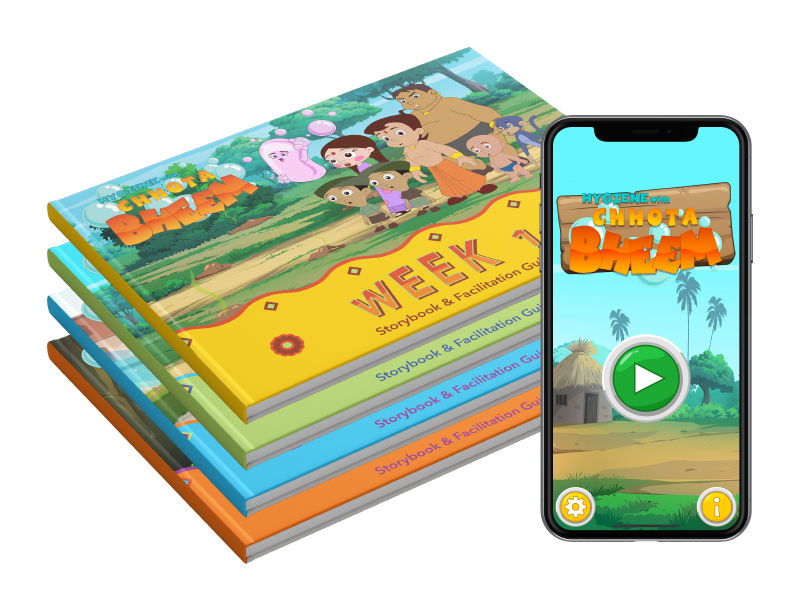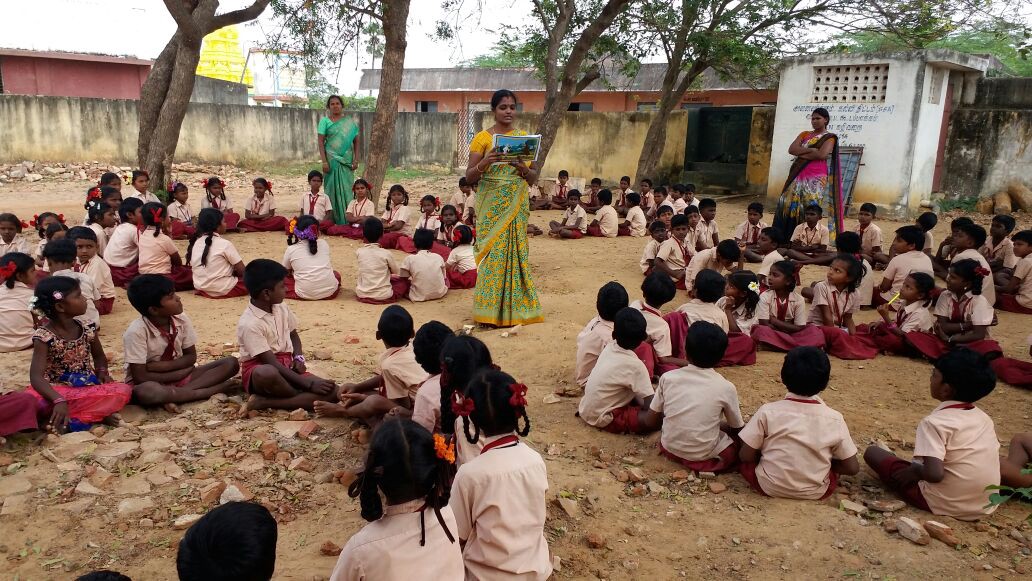Hygiene with Chhota Bheem Launches March 6th, 2019
Tuesday, February 26, 2019


Calling all Clean Warriors! The Engagement Lab at Emerson College is excited to announce that ***Hygiene with Chhota Bheem* is set to officially launch on March 6th, 2019.**
Developed by the Engagement Lab in partnership with Green Gold Animation, the Indian Red Cross Society, the Mary Anne Charity Trust, and a working group of other NGOs and civil society groups, and generously supported by a grant form the UBS Optimus Foundation, Hygiene with Chhota Bheem is a** play-based curriculum that features one of India’s most beloved children’s characters to teach students about the importance of handwashing and toilet use.
Launching first in Tamil Nadu, India, this play-based curriculum builds on the proven success of our 2018 pilot study, reflecting the feedback and active participation of teachers and students in India.
Throughout the modular curriculum, students will immerse themselves in the world of Chhota Bheem, helping the show’s characters to defeat the evil Germ Wizard and his plot to spread germs throughout their village by engaging in daily handwashing, songs and dances, and advocating hygiene best practices to others.
“This project represents a truly participatory design process, where teachers, students, and civil society participated in the outcomes,” said Eric Gordon, executive director and principal investigator at the Engagement Lab. “After two years of research and development, we have a powerful and tested play-based curriculum that we know works.”
The need for a program like Hygiene with Chhota Bheem couldn’t be more urgent. As of 2015, 20% of all global deaths from diarrhea or pneumonia in children under five happen in India, and systematic reviews also estimate that only 15% of people in India regularly practice hand washing with soap.
While serious progress has been made in recent years to make toilets more accessible in India, increasing the number of household toilets has not yet resulted in full uptake, or accounted for whether the types of toilets and the locations they were built are sustainable over time. Local attitudes need to change too: awareness and educational campaigns to promote knowledge of hygienic toilet use are essential.

That’s where Hygiene with Chhota Bheem comes in. By participating in games, challenges, and in-class exercises, students join the “Bheem Team” and develop awareness and best practices in hygiene and health.
The effectiveness of this playful approach is proven. “We conducted a year-long research project on the efficacy of the curriculum and learned that it had significant impacts on knowledge, attitudes and behaviors of children 7–11 years old,” Gordon said. “Most importantly, we learned that the curriculum gave young people the tools they needed to advocate for their own health.”
This year, we’re taking things to the next level, ensuring the sustainability and long-term impact of the program. “We are launching a website and an app to make the facilitation guides and accompanying resources more accessible, and we are also designing a certification course to train facilitators,” said Jahnvi Singh, Project Manager for Hygiene with Chhota Bheem. “This year, we will train almost 700 village health nurses, educators, NGO staff, and youth advocates through our certification course.”
> > “After two years of research and development, we have a powerful and tested play-based curriculum that we know works.”
This official launch of Hygiene with Chhota Bheem builds on the success of our 2018 pilot study, including teachers, students, and facilitators as key participants in the design process.
From a passionate student driven to ensure toilet access for her family to dedicated parents helping to construct toilets for their entire community, the stories and feedback we’ve received over the past year have been both inspiring and transformational.
In many cases, the actions of teachers and facilitators had a direct impact on the program. “We saw facilitators adapting the beta version in interesting ways and we had to include these innovations in the new version,” Singh said. “These include ways of engaging and motivating learners to adopt hygiene practices, new songs that teachers co-created with learners, and much more.”
Moving forward, our team will work with key education and health organizations in Tamil Nadu to ensure a long, sustainable future for the program. Public workshops will begin there in May, with ambition to expand to other parts of India thereafter.
We’re grateful to our funders and partner organizations who have helped make this significant impact possible, and look forward to making 2019 _Hygiene with Chhota Bheem_’s most impactful year thus far!
To learn more about Hygiene with Chhota Bheem, you can check out the project’s new website or download the app for iOS and Android. To keep up with the latest from the Engagement Lab, subscribe to our newsletter or follow us on Twitter.